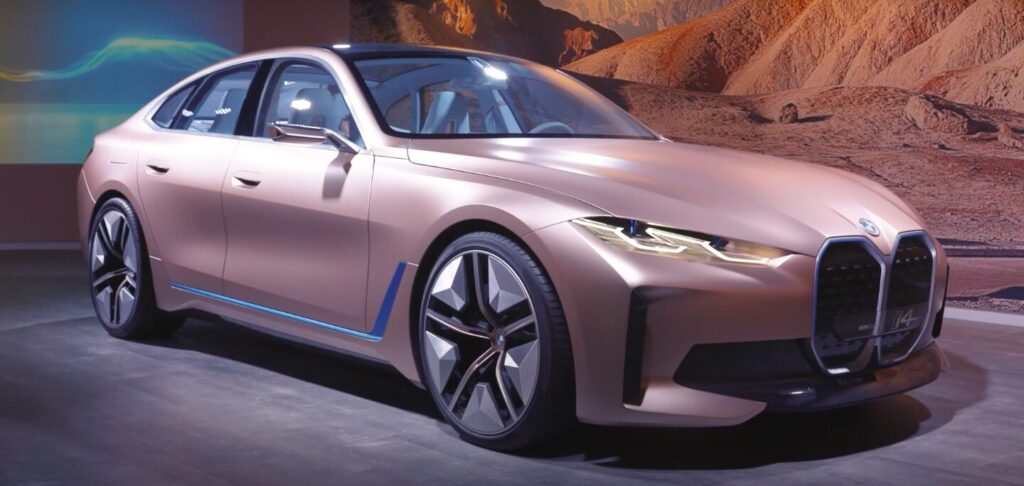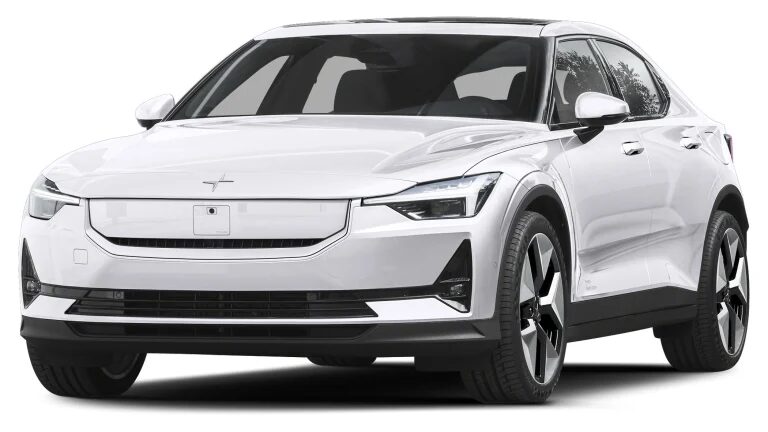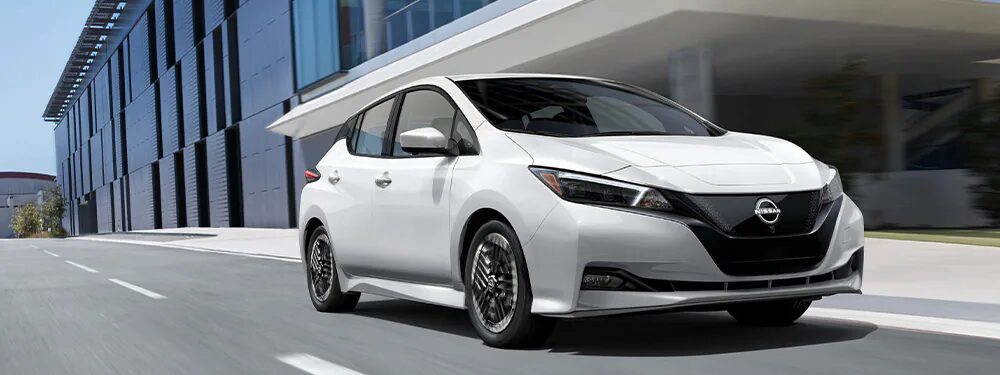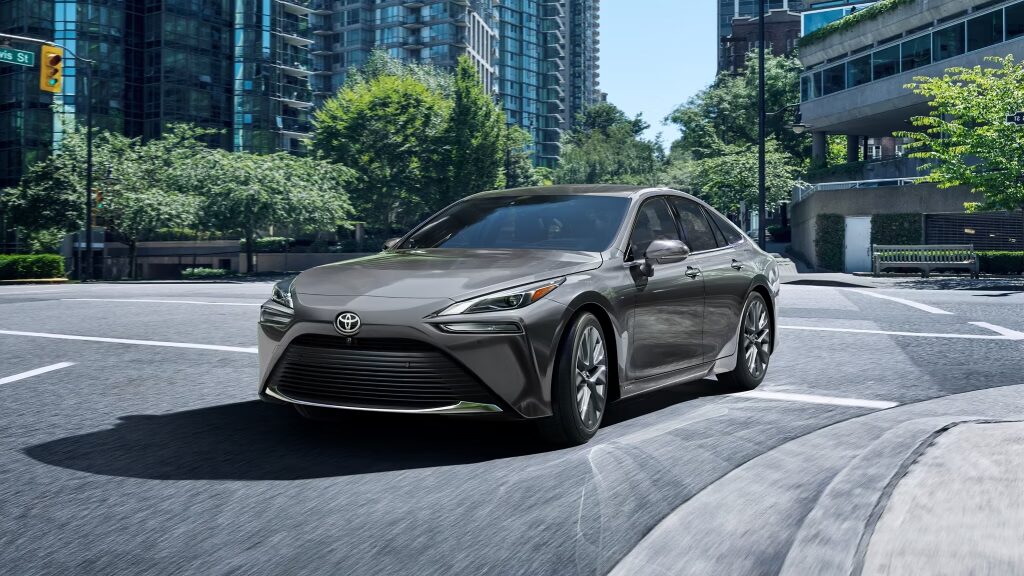Ready to Go Electric? Check Out the Best Sedans
If you’re thinking about making the switch to electric, these top-rated sedans are here to steal your heart—and maybe your gas money too. From cutting-edge designs to impressive performance stats, these EVs are redefining what it means to drive green. Let’s dive into the specs, the perks, and why you should consider parking one in your driveway.
1. 2024 Hyundai Ioniq 6

Starting Price: $38,650
EPA Estimated Range: 240–361 miles
Horsepower: Up to 320 hp
Charging Time: 10% to 80% in just 18 minutes with a fast charger
Why Buy? The Ioniq 6 isn’t just a pretty face—it’s a powerhouse with an incredible range, sleek design, and a tech-packed interior. Whether you’re commuting daily or hitting the road for a long trip, the Ioniq 6 has you covered with its impressive range and ultra-fast charging capabilities. Plus, it’s one of the most stylish EVs on the market, making it as fun to look at as it is to drive.
2. 2025 BMW i4

Starting Price: $53,975
EPA Estimated Range: 267–318 miles
Horsepower: Up to 536 hp
0-60 mph: As quick as 3.7 seconds
Why Buy? The BMW i4 is where luxury meets performance in the EV world. With a variety of powertrain options, it offers something for every driver—from those seeking a smooth, comfortable ride to those craving serious speed. The i4 doesn’t just compete in the EV segment; it sets a new standard for what a luxury electric sedan should be. Plus, with BMW’s signature driving dynamics, you get a driving experience that’s both thrilling and refined.
3. 2024 Polestar 2

Starting Price: $51,300
EPA Estimated Range: 276–320 miles
Horsepower: Up to 476 hp
Tech Features: Google-powered infotainment system
Why Buy? If you’re looking for an alternative to the usual suspects in the EV world, the Polestar 2 might be your perfect match. It’s a car that continuously evolves, offering updates that keep it fresh and competitive. With a powerful range, a minimalist Scandinavian design, and cutting-edge tech, the Polestar 2 is as smart as it is stylish. It’s the kind of car that turns heads and starts conversations, all while delivering a smooth and responsive drive.
4. 2024 Tesla Model 3

Starting Price: $40,630
EPA Estimated Range: 272–363 miles
Horsepower: Up to 450 hp
Autopilot: Semi-autonomous driving with Autopilot
Why Buy? The Tesla Model 3 is the car that changed the EV game forever, and it’s still leading the pack. With an impressive range, fast acceleration, and the latest updates from Tesla, this sedan offers a blend of tech and performance that’s hard to beat. It’s also one of the few EVs that truly feels like it’s from the future, thanks to Tesla’s cutting-edge technology and semi-autonomous driving features. For those who want to be at the forefront of the electric revolution, the Model 3 remains a top contender.
5. 2025 Volkswagen ID.7

Starting Price: $50,000 (est.)
EPA Estimated Range: To be announced
Size: Passat-sized sedan
Why Buy? The ID.7 is Volkswagen’s latest addition to its growing ID family, and it’s set to make waves in the EV market. With its sleek, aerodynamic design and spacious interior, this sedan is perfect for those who need a bit more room without sacrificing style. It’s the kind of car that makes you rethink what you know about Volkswagen—this is a brand that’s serious about going electric. If you’re looking for a practical yet stylish EV, the ID.7 should be on your radar.
6. 2024 Fiat 500e

Starting Price: $34,095
EPA Estimated Range: 141 miles
Size: Compact city car
Why Buy? The Fiat 500e is the definition of fun-sized. While it might not have the longest range or the most power, it’s packed with charm and personality. Ideal for city dwellers, this compact EV is perfect for zipping through urban streets and squeezing into tight parking spots. Its retro design makes it stand out from the crowd, while its affordable price tag makes it an accessible entry into the world of electric cars.
7. 2025 Nissan Leaf

Starting Price: $29,280
EPA Estimated Range: 150–215 miles
Tech Features: ProPILOT Assist
Why Buy? The Nissan Leaf has been a pioneer in the electric car market, and it continues to be a solid choice for those seeking an affordable, reliable EV. While its range may not be as impressive as some of the newer models, it offers a roomy cabin, comfortable seats, and a smooth ride. It’s a practical choice for everyday driving, and its lower price point makes it accessible for a wide range of buyers.
8. 2024 Mini Cooper Electric

Starting Price: $31,895
EPA Estimated Range: 114 miles
Style: Classic Mini design with an electric twist
Why Buy? The Mini Cooper Electric is all about style and fun. While its range is best suited for city driving, it offers a lively driving experience and the iconic Mini look. If you love the classic Mini but want to go green, this is the car for you. It’s compact, stylish, and makes every drive feel like an adventure.
9. 2024 Toyota Mirai

Starting Price: $51,325
EPA Estimated Range: 357–402 miles
Power Source: Hydrogen fuel cell
Why Buy? The Toyota Mirai is a unique player in the EV market, running on hydrogen instead of traditional electricity. Available only in California, this sleek sedan offers an impressive range and a luxurious interior. It’s perfect for those looking to stand out with cutting-edge technology and a commitment to zero emissions. If you’re in the right location, the Mirai offers a driving experience like no other.
Gvlin FAQs | About Electric Cars
1. Can you charge an electric car at home?
Yes, you absolutely can charge an electric car at home, and it’s usually the most cost-effective way to do so. With the right at-home charging equipment, many electric vehicles can achieve a full charge overnight. This means you can plug in your car before bed and wake up to a fully charged vehicle, ready to tackle the day ahead.
2. How long does it take to charge an electric car?
The time it takes to charge an electric car depends on several factors, including the specific model of the vehicle and the type of charging equipment you’re using. Generally speaking, an average electric car could take roughly 10–12 hours for a full charge using a Level 2 (240-volt) source. However, if you’re in a hurry, a Level 3 public DC fast charger can juice up your battery from 10% to 90% in just 30-45 minutes, making it convenient for those quick stops during road trips.
3. How much does it cost to charge an electric car?
The cost of charging an electric car can vary based on several factors, including your local electricity rates and whether you’re using a home or public charger. Typically, charging at home is the most affordable option, with public fast charging costing two to four times more. So, if you’re looking to save money in the long run, charging at home as much as possible is the way to go.
4. How long do electric car batteries last?
Electric car batteries are built to last, and the federal government requires automakers to warranty them for a minimum of eight years or 100,000 miles. In states like California, this warranty is even extended to 10 years or 150,000 miles. Most electric car batteries will continue to perform well beyond these warranty periods, giving you peace of mind that your investment will stand the test of time.
5. Do electric cars need oil changes?
No, electric cars do not need oil changes like traditional gas-powered vehicles. This is because electric drive motors are far simpler and require minimal maintenance compared to internal combustion engines. However, it’s important to note that electric cars do have coolant and some oil in the drive units, which are typically replaced at much longer intervals than what you’re used to with a conventional car. So, while you can say goodbye to frequent oil changes, some maintenance is still required, albeit much less often.
6. How do electric cars work?
Electric cars are powered by one or more electric motors that receive electricity from a large battery pack. This battery pack is recharged by plugging it into an external power source, either at home or at a public charging station. Essentially, the electric motor converts the electrical energy from the battery into mechanical energy to move the vehicle, making the driving experience smooth, quiet, and emissions-free.
That’s It | Are You Ready to Make the Switch?
Electric cars aren’t just the future—they’re the present. With options ranging from high-performance sedans to charming city cars, there’s an EV out there for everyone. Whether you’re drawn to the innovative tech, the environmental benefits, or simply the thrill of driving something new, these 2024 models offer a perfect blend of style, performance, and sustainability. So, which one’s going to be your next ride?
